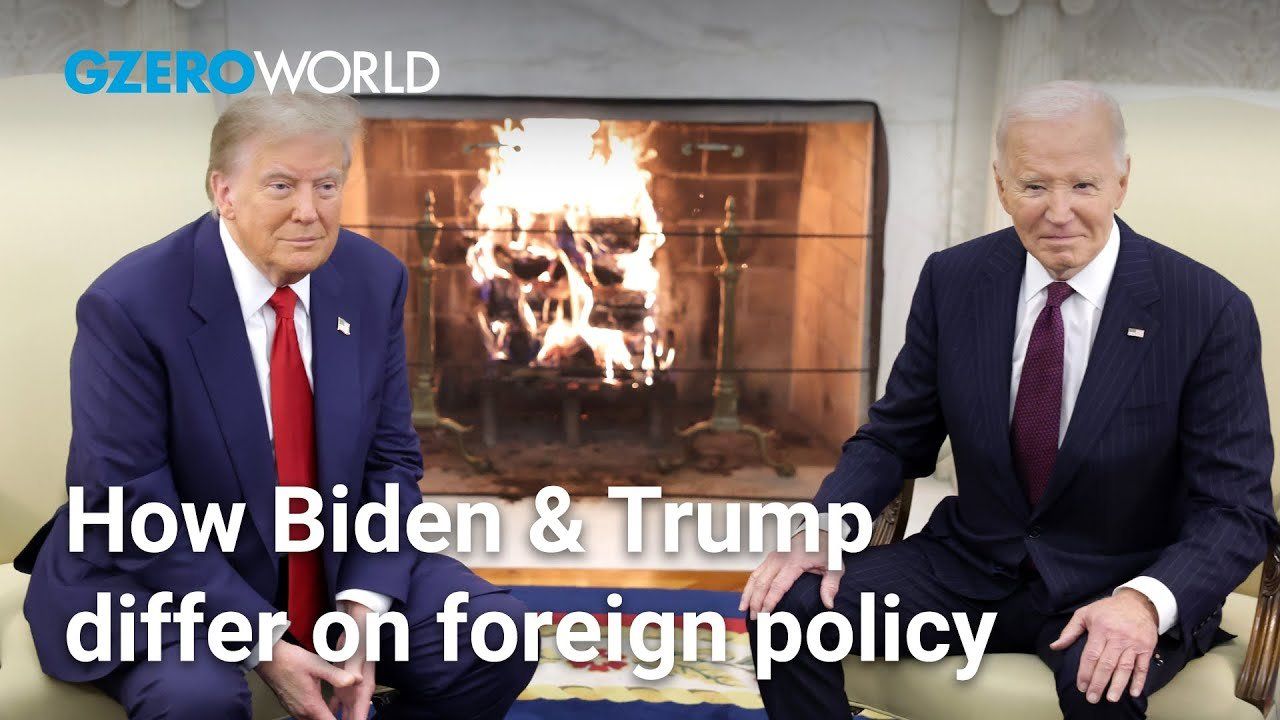A smooth Biden-Trump transition is vital to protect US interests, says Jake Sullivan

At a live event hosted by the 92nd Street Y in New York City, National Security Advisor Jake Sullivan sat down with Ian Bremmer for GZERO World, Bremmer’s PBS global affairs TV series. Reflecting on the challenges of transitioning between administrations, Sullivan provided a rare behind-the-scenes look at how the outgoing Biden administration and the incoming Trump administration are working together to safeguard US interests during this critical period.
Sullivan highlighted the importance of a seamless handoff to prevent adversaries from exploiting the transition: “Other actors, particularly our enemies, look at transitions as moments of opportunity… the imperative on us is to lash up more tightly than is typical and send a common, clear message to both friends and adversaries.” This bipartisan collaboration includes close coordination with his successor, Mike Waltz, ensuring continuity in U.S. foreign policy even amid profound ideological differences.
Acknowledging the challenges of transitions, Sullivan praised the cooperative spirit between the two administrations, even after years of mutual criticism. “For this moment, what we are trying to do on behalf of the national interest of the United States is extremely important despite the deep differences that do exist between the outgoing and incoming administrations,” he said. This rare alignment, Sullivan noted, is essential to addressing pressing global risks and maintaining America’s leadership abroad.
Watch the full interview with Jake Sullivan on GZERO World with Ian Bremmer on US public television beginning Friday, December 20. Check local listings.
GZERO World with Ian Bremmer, the award-winning weekly global affairs series, airs nationwide on US public television stations (check local listings).
New digital episodes of GZERO World are released every Monday on YouTube. Don't miss an episode: subscribe to GZERO's YouTube channel and turn on notifications (🔔).
- Putin isn't winning in Ukraine, says US National Security Advisor Jake Sullivan ›
- Saving US hostages in Gaza: Use Egypt as intermediary, urges Rep. Mike Waltz ›
- Speakerless House shows weakness to US adversaries, says Rep. Mike Waltz ›
- Trump taps hardliners and loyalists for key positions ›
- What Trump’s cabinet picks reveal so far ›
- EXCLUSIVE: An Interview with outgoing US National Security Adviser Jake Sullivan ›
- Will Trump reverse Biden’s move on long-range missiles for Ukraine? ›